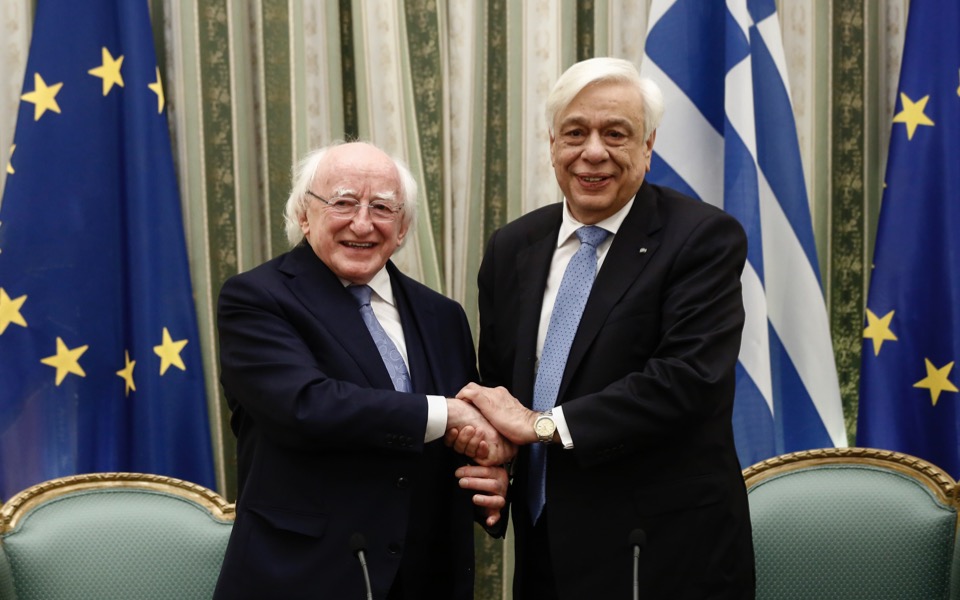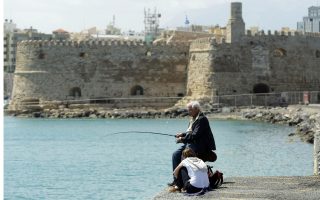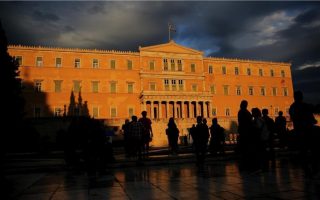Similarities between Greece and Ireland

The recent visit to Athens by Michael D. Higgins, president of Ireland, was a reminder of the great similarities and also the great differences between Greece and Ireland.
I have known the Irish president for over 30 years, from the time when he was a sociologist in Galway University and an aspiring socialist politician. The man I know is that rare creature: a politician with a conscience. He is not a man for platitudes, and he really meant what he said in Athens – in conversation with President Prokopis Pavlopoulos, and in his speeches at Athens University and the Concert Hall.
His words had a far greater impact, emotionally and intellectually, than speeches in Athens by former American president Barack Obama, French President Emmanuel Macron or Israeli President Reuven Rivlin because, despite the dignity of his office, he speaks persuasively from a background in sociology and culture. He has not only written extensively about clientelism, but he is a poet whose origins in poverty have left him able to empathize with citizens occupying the lowest strata of society.
He has long been critical of the European Union, without becoming a Euroskeptic. He is particularly conscious of the democratic deficit and this was a central point in his speeches here. His remarks on Europe were a wake-up call, demanding a greater response from “public intellectuals.” He clearly believes that Greece can contribute its voice to this call because he was insistent that Ireland and Greece are part of the reshaping of the European polity. I think he delighted politicians of all persuasions (and none) because he was unequivocal in stressing the role of the smaller nations in creating “a union of European publics,” a “European Union of humanity.”
As a socialist, a sociologist and a poet he is adamant about the need to reach out to people to understand their hopes and needs, especially those of young people, calling for a “union of empathy.” A hallmark of all his speeches in Athens was his emphasis on the ordinary citizen, whose voice is not being heard sufficiently in the corridors of power. “Begin with the citizens,” he said. “Give them the means to participate.”
He delighted politicians with his weighty remark that “the future of Europe cannot rest on a limited conversation between the strongest.” When he said “public language is losing its power to reflect private experience,” he clearly meant not only that governments should speak to governments, but that politicians should re-establish their roots among the electorate, reflecting on what he called “the world of lived experience with all its contemporary challenges.” This was a diplomatic way of saying “members of parliament are out of touch with the reality of everyday life in the towns and villages.”
But he is also a realist. When his party was in place in the mid-1990s as a possible junior partner in a coalition government, it brought both the far-left elements (including Higgins) and the center-left into government with a center-right partner. Compromise was essential if the Labour voice was to be heard at the cabinet table. The result was to bring Higgins to cabinet as minister for culture and broadcasting. He not only proved to be the most influential minister (before or since) in both those portfolios, but it brought him into contact with opposite numbers like Melina Mercouri, who became a close friend. I think Mercouri introduced him not only to the Greek cultural and spiritual values but to important women in Greek life such as Margaret Papandreou, whose recent book, “Love and Power,” he has enjoyed.
As a pragmatist, Higgins is only too well aware of the increasing gap between rich and poor. Whether he realizes how acute that is in Greece, I don’t know. But his background in researching clientelism in the Irish context has alerted him to the same sickness in Greece. While a member of parliament looking after the interests of his or her constituents may be a legitimate social use of political power, there is a point where clientelism (who you know) shades into cronyism (jobs for the boys) and here the Irishman rejects a system which stifles creativity and meritocracy in the interests of self-advancement.
In Higgins’s speeches there was, of course, the obligatory obeisance to Athens as the home of democracy. But when he referred to a democratic deficit in European politics we can also detect his suspicion that there may be factors missing in the domestic democratic process. Higgins reads his briefs (and my column in The Irish Times!) and knows how accurate some of the EU criticisms of the Greek system really are.
Over 30 years ago, Higgins wrote an essay on “The Tyranny of Images,” in which he attacked the self-portrait of a country that saw itself as idyllic, happy and peaceful – what the tourist wants to see – and that such a country might betray itself by pandering to its own mythology. That essay ends: “Let us live in the present with enough courage not only to reject an escape into the past but to unmask the facts of exploitation and domination,” to embrace “options of justice and freedom, of love and sensuality in the future.” That, I think, would be his message today to the Greek people, their politicians and their political philosophy.
* Richard Pine is director of the Durrell Library of Corfu (where he lives) and author of “Greece Through Irish Eyes.”




